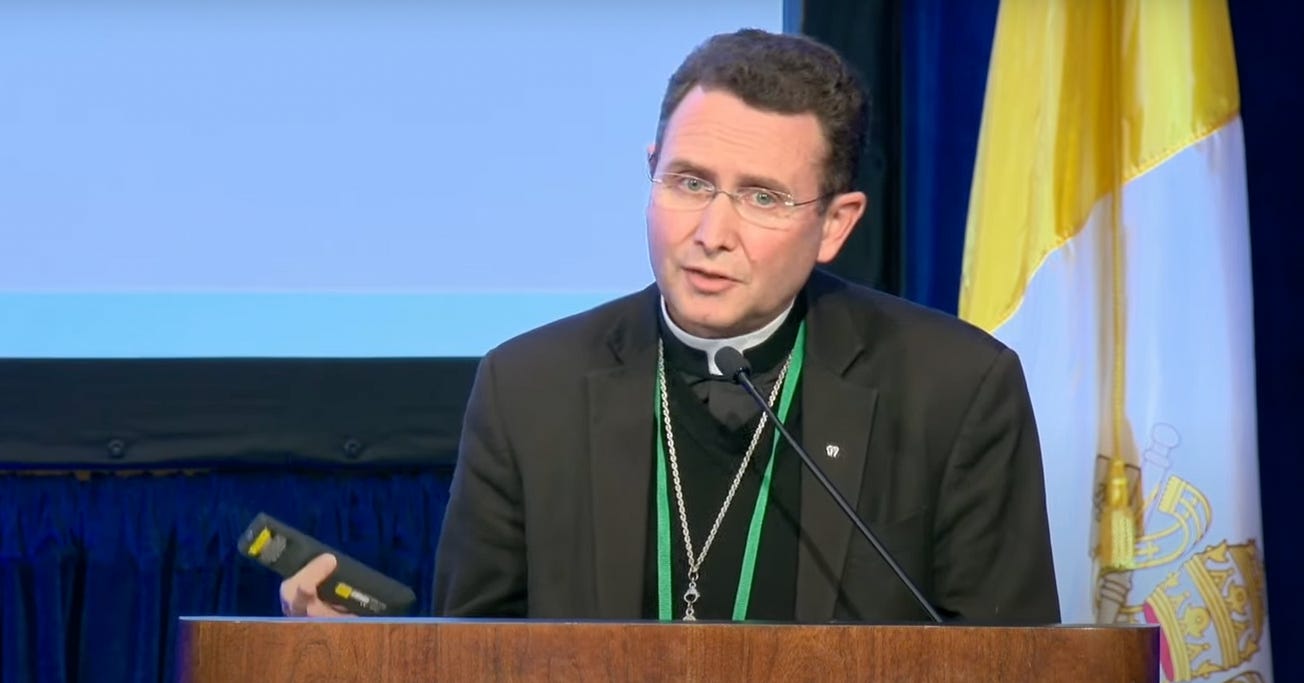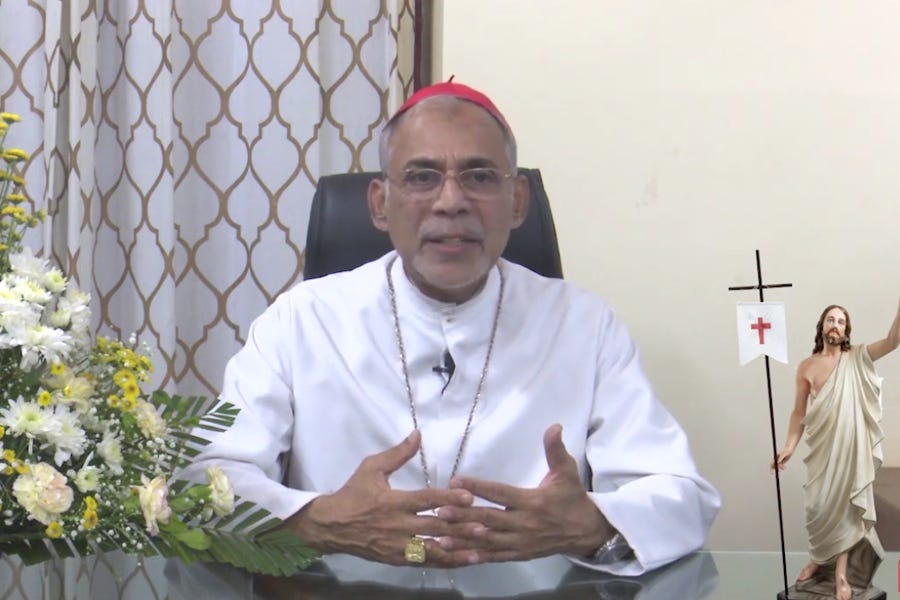The archbishop responsible for Catholics serving in the U.S. military, said Tuesday that no one can be compelled to receive a coronavirus vaccine against their conscience, and that denying troops religious exemptions to the vaccine could be “contrary to federal law and morally reprehensible.”

The archbishop’s statement is likely to fuel a growing controversy in the military over the vaccine mandates, especially after an August decision by Defense Secretary Lloyd Austin required vaccination among all service personnel.
“On 24 August 2021, the Secretary of Defense issued a memorandum directing the mandatory vaccination of all services members against COVID-19. Since then, some service members have refused to take the vaccine and have requested a religious accommodation through the Religious Freedom Restoration Act,” Archbishop Timothy Broglio wrote Oct. 12.
“This circumstance raises the question of whether the vaccine’s moral permissibility precludes an individual from forming a sincerely held religious belief that receiving the vaccine would violate his conscience. It does not.”
The Archdiocese for the Military Services is responsible for the pastoral care of Catholics serving in the U.S. military and their families, an estimated 1.8 million people.
There are more than 2.1 million military service personnel, hundreds of thousands remain unvaccinated. The mandate’s deadline comes into force on different dates across the different service branches; Navy and Marine personnel have until November 28 to comply, active duty Army personnel have until December 15.
While Broglio is the proper ordinary for Catholics and their families serving in the military, he plays no role in the process of granting religious exemptions to the vaccine mandate for military members. Each service branch is responsible for the vaccination of its own personnel and for the consideration of requests to be exempt from the mandate.
Military exemptions to the mandate can be granted on religious or personal conscience grounds, but commanders have stressed that these are expected to be rare, and are unlikely to be granted if applicants have not made similar requests for exemptions from other vaccines required by the military.
If they do not have exemptions, personnel who refuse to be vaccinated face possible non-judicial discipline and discharge from the service.
In his statement Tuesday, Broglio appeared to take issue with the Pentagon’s approach to granting exemptions, and with the possible consequences faced by those denied an exemption.
“The denial of religious accommodations, or punitive or adverse personnel actions taken against those who raise earnest, conscience-based objections, would be contrary to federal law and morally reprehensible,” wrote the archbishop.
“Even if an individual’s decision seems erroneous or inconsistent to others, conscience does not lose its dignity. This belief permeates Catholic moral theology as well as First Amendment jurisprudence. As stated by the United States Supreme Court: ‘Religious beliefs need not be acceptable, logical, consistent, or comprehensible to others in order to merit First Amendment protection.’”
Archbishop Broglio’s statement is the latest intervention by a Catholic bishop in the United States on the subject of vaccine mandates.
Some bishops, including Broglio and the bishops of Colorado, have said that Catholics may refuse a vaccine as a matter of religious conviction, despite the Church’s support for their use. Other dioceses, including the Archdiocese of New York, have instructed priests not to sign letters for parishioners supporting religious exemptions to vaccine requirements.
The Church’s teaching authority has authorized, even encouraged, the use of vaccines to halt the spread of the pandemic, while the Congregation for the Doctrine of the Faith has also made clear that “practical reason makes evident that vaccination is not, as a rule, a moral obligation and that, therefore, it must be voluntary.”
Responding to the ongoing objections by some Catholics and other pro-life campaigners that the Pfizer and Moderna vaccines were tested on material derived from cells taken from an abortion in the 1970s, Broglio said “That type of a link has been for centuries considered remote material cooperation with evil and is never sinful,” while noting that the use of similar cells in the development of the Johnson and Johnson vaccine is “more problematic” but still “morally permissible.”
Broglio emphasized that the Holy See and the relevant USCCB committees have authorized the use of the available coronavirus vaccines and that the Archdiocese for the Military Services “clearly encourages the faithful entrusted to her care to follow the guidance of the Holy See and the United States Conference of Catholic Bishops with regard to COVID-19 vaccines.”
But, the archbishop wrote, quoting the Second Vatican Council’s Dignitatis humanae, “In all his activity a man is bound to follow his conscience in order that he may come to God, the end and purpose of life. It follows that he is not to be forced to act in a manner contrary to his conscience.”
“Notwithstanding the moral permissibility of these vaccines, the Church treasures her teaching on the sanctity of conscience,” said Broglio.




